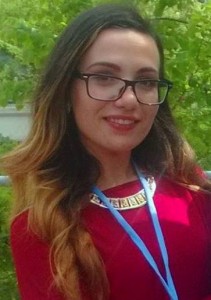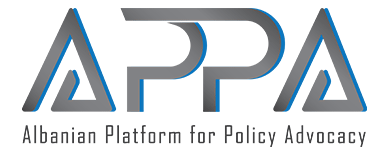
Rezearta Caushaj
1- Je suis #EUROPIAN?!
‘’Europe’s day is a celebration, but mostly a time to reflect’’ – this was the start of Commissioner Hahn’s speech on Europe’s day, in which he reminded us not only the reasons why the EU was created, what has been achieved so far, but above all the challenges ahead and the fact that the success of the European project should never be taken for granted. This day, largely celebrated throughout Europe, is considered one of the European symbols and was designed to promote solidarity among European citizens. In the same spirit, the Ministry of Europen Integration has organized several activities in the city of Berat, Kukes and Tirane under the slogan ‘’I am European’’, activities organized with and for high school students of these cities. Even the minister of integration, Ms. Gjosha, delivered several speeches and messages during those dates. But differently from the honorable Commissioner, they were not intended to promote reflection. The above mentioned activities were empty in content, celebrations and messages and went by without attracting the public’s attention, thus showing how far the Ministry of Integration is from being a European institution, serious and dedicated.
First of all because Ms. Gjosha’s speeches, which we have learned by heart now, continue to be in the lines of: ‘’We are part of Europe with responsible citizens. We are part of Europe because we are indeed Europeans, because Europe is our future, the future of our development and our children. I hope we will work together for an Albania with full rights in the EU’’. It is not surprising that Europe does not think the same way as our minister of integration and we have not yet managed to become responsible and European citizens. Here our leaders disappoint us because they insist on keeping a discourse sorrounding the benefits of being a European, with the idea that since we love Europe so much, Europe will have to accept us in our current state, in the idea that political will to enter the EU (the will of each government since the 90’s) prevails over the work we have to do in order to deserve membership.
This discourse is encouraged by avoiding reflection, avoiding to talk about real problems that are hampering EU integration (such as the lack of active citizenship or illiteracy among stratas of society that are supposedly educated), avoiding to talk about real solutions to these problems and continuing with phrases known in the jargon of social media as Ndoka expressions such as ‘’The right to an education is the right of each child’’ (Minister of Integration, Mrs. Klajda Gjosha). However she is right when saying that integration starts in the furthest edges of Albania, because their situation (which we take advantage from only during celebrations) shows how far from being Europeans we are. Integration should start with them because integration in these areas has not even started.
These activities resembled more to campaign events with high officials of ministries, leaving the place to each other to show what the respective institution has done. Regarding young people from high schools, ‘’selected’’ to celebrate Europe’s day as they are considered to be the future European citizens, they served mainly as a décor to the activity, by serving them a ‘’fake’’ European passport through an app. If the Ministry of Integration would be so invested in educating and integrating young people, then instead of spending taxpayers’ money on apps to act as if we are Europeans, why not organize an exhibition to testify to our solidary and commitment.
Lastly, if the head of the Ministry of Integration is leading an institution with European standards and if these are the standards that lead the high official, personally Ms. Gjosha should work on coordinating the work of the institution instead of introducing SMI candidates in the pre-electoral campaign of the upcoming local elections (Introduction conducted on May 1, far from the official start of the campaign as sanctioned by law).
2- Massive immigration of Albanians
Massive immigration of Albanians, who go to European countries to seek asylum for economic reasons (judicially not recognized as a reason for asylum seeking) has become a concern for member countries of the EU. In the seventh meeting of the Council for Stabilization and Association EU-Albania, the government was asked to address the problem, undertaking concrete measures to stop the rising phenomenon. Studies from the Eurobarometer rank Albania among countries striken by conflicts such as Syria, Pakistan, Eritrea and Somalia from the number of asylum seekers. Lack of employment opportunities seems to be the major reason for this mass movement, a phenomenon that has generally affected young people, including those with higher education. In this context, lets hope the government will not continue with the current policy predominantly following the principle ‘’if we do not talk about the problem, it will go away on its own’’. When the problem is talked about, there are declarations, such as the one coming from minister Gjosha calling on Albanians to be aware of the fact that immigration towards EU countries is damaging the country’s image, which we have built with difficulty and urges them to come back to their country. The questions arising in this case are: Which houses to come back to? Which jobs? Which future?
3- 7th Council of Stabilization and Association EU-Albania
This meeting is the first since Albania received candidate status last year. The Council measured the progress of reforms and policies followed from the government. It has estimated that several steps forward have been made in the framework of human rights, the fight against corruption and organized crime (referring strongly to the fight against drugs conducted last year) as well as several steps in regards to the administrative and judicial reform.
However, if we only refer to speeches of government officials, this meeting as all the preceding ones was a complete success, but in reality the Council did not have a completely positive assessment for any of the abovementioned reforms. To the contrary, 28 member states had a lot to say about several policies that more progress needs to be done, which will be evaluated in the October Progress Report, such as:
- Elections – ‘’the EU emphasizes the importance of ensuring that local elections of June 21 are held in line with the highest standards for democratic elections’’.
- Functioning of independent institutions: ‘’divisions of powers, proper functioning and independence of democratic institutions such as the parliament, judiciary and regulatory authorities, are key elements for a functioning democracy’’.
- ‘’The EU reminds that judicial reform remains a key challenge for the integration process of Albania. Independence, impartiality, transparency, efficiency and accountability of judicial system are key elements in evaluating the political criteria for membership in the EU and key to ensuring respect and rule of law as well as progress in the fight against corruption and organized crime’’.
- Public administration: ‘’the ability to implement the European practice depends largely on the efficient and de-politicized public administration’’.
- Media: The EU encourages Albania to ensure the freedom of the media and pluralism. The EU invites Albania to increase transparency of media financing’’.
Also, as it was identified in the April report, a special attention was placed on the government-opposition dialogue, which is key to implementing sustainable reforms.
Maybe the most positive aspect, emphasized for months, is the functioning of the National Integration Council, which will try to make the process comprehensive, but also to test if political dialogue will last or is it only a façade we will use every time we go to Brussels.
References:
5- http://shqiptarja.com/news.php?IDNotizia=289356&IDCategoria=1
6- http://top-channel.tv/lajme/artikull.php?id=299475&ngj
8- http://news.albanianscreen.tv/pages/news_detail/89562//ALB#Xchiu
9- http://top-channel.tv/lajme/artikull.php?id=299467#relin




